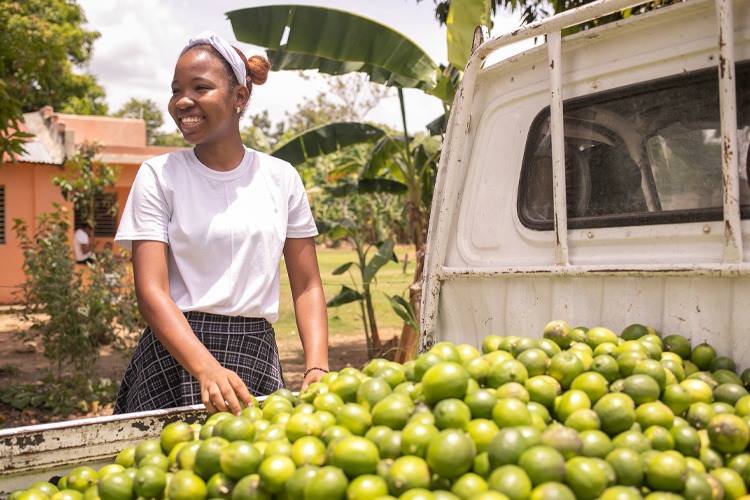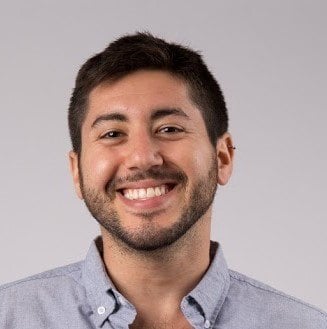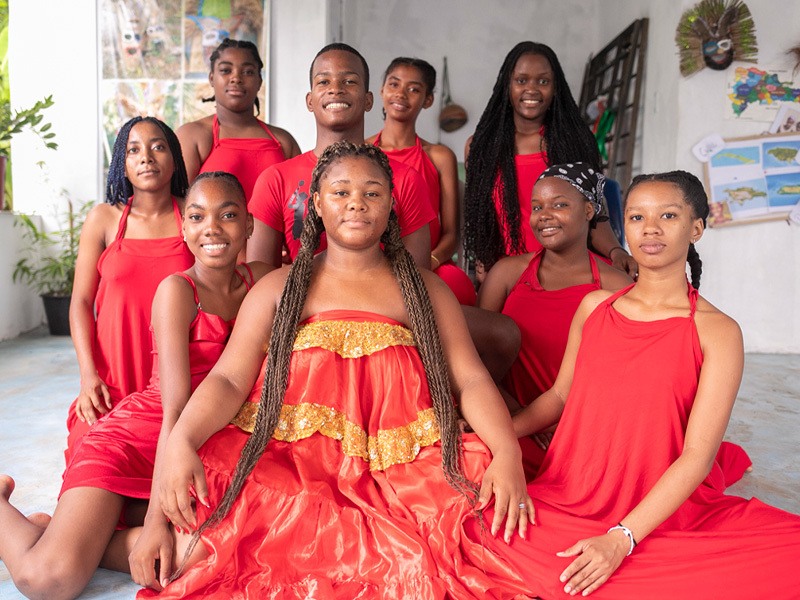
Teresa Mercedes Emilia, 19, says she was blessed to grow up surrounded by strong women — especially her proud grandmother. She was born in the rural community of Los Mercedes, which was founded by Afro-descendent people (known as “cimarrones”) who liberated themselves from enslavement and created their own autonomous communities. Teresa remembers picking coffee beans, fetching water, cooking and dancing together with her grandmother.
“My grandmother dealt with so much tragedy in her life, but I never saw her discouraged. She would say: If you can dance, you can heal any wound. Just like a tree, you must shake off the dead leaves,” remembers Teresa. “She would stand up and dance and shake, and we’d laugh so hard. She’d say: I just gained a year of life!”
As a teen, Teresa joined Así Soy, an AJWS- supported organization in Los Mercedes leading traditional dance workshops for adolescent girls. Así Soy (which roughly translates to “This is me”) was founded in 2019 with a simple but profound principle: Our bodies hold generational trauma and movement is the key to process it. For the Afro-Descendent girls of Los Mercedes today, this trauma remains profound.
“[Black communities] are the losers in the story of the Dominican Republic. We are the descendants of enslaved people, who were treated as animals and denied their human rights. Children are born hearing this narrative: they’re inferior, and they don’t understand why,” says Margarita Castillo, the founder and director of Así Soy. “So our work is not to create dancers. Dance is just the tool to reprogram their minds.”
Reclaiming their very humanity
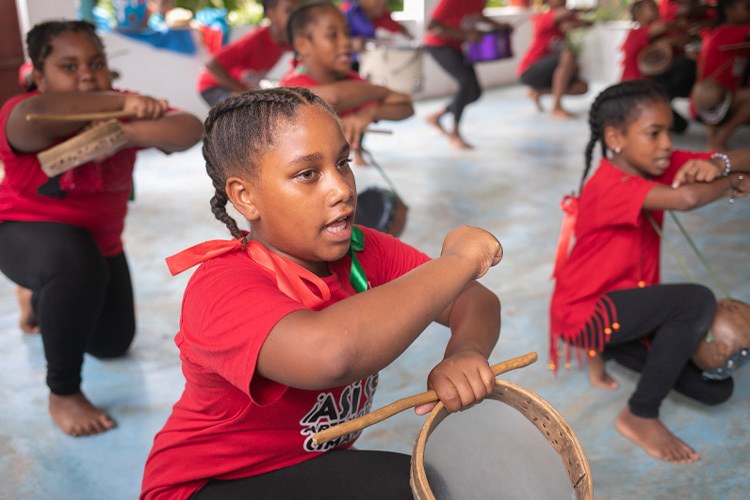
Today, Así Soy teaches about 70 adolescent girls (and a few boys) Afro-Dominican and Afro-Caribbean traditional dances, music, theater and crafts — and through these dances and guided conversations, they learn to embrace their identity as Afro-Descendent Dominicans and reclaim pride in their ancestry and their very humanity within a society that values European descendance and light skin above all.
Así Soy’s workshops are based on Kalalu Danza, a school of dance and teaching methodology that uses the arts to transform the problems affecting Afro-Descendent communities in the DR. Kalalu Danza was founded by Marily Gallardo — a retired, legendary Dominican professional dancer and educator.
As Marily says today, “Slaves brought nothing with them from Africa but memories. They had no tools but their bodies. Dance awakens our ancestors’ struggles and the liberation they fought for in our own bodies; we are breaking chains through traditional dance.”
These chains exist in Dominican society, but in their own community as well, where restrictive gender roles and patriarchal structures still loom large.
“Our girls become empowered and have the courage to say: No, I’m not getting married until I do what I’m here to do. Go to university. Start a business. They have an open vision of what they can do with their lives,” says Margarita. “It might sound really simple. But for a girl to learn that she has a voice in her own life, it helps her become a more complete human being.”
Growing up with Así Soy
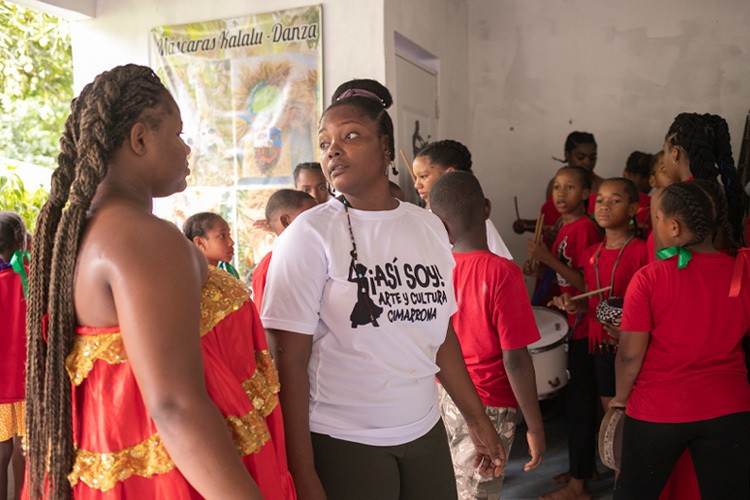
Many children in Los Mercedes first join Así Soy when they are just five or six years old, and stick with the continuous education and dance programming until they are young adults. From the youngest to the oldest groups, the message of self-love is always strong.
One popular song among Así Soy’s kids is “ETAQUETÚVES” (or “This One You Can See”) by Dominican star Xiomara Fortuna — its lyrics are powerful for this Afro-Descendent community: “This large nose, it was given to me by god. This nose, it’s mine. These lips, they’re mine.”
For Teresa, the journey with Así Soy has reinforced the messages instilled by her grandmother. “Girls don’t think they can achieve their goals or dreams, but with Así Soy we realize that the world is open for us,” she says.
Teresa’s grandmother recently passed away after a long illness; Teresa sat by her bedside for the last eight months of her life.
“I used to say, if only Así Soy had been around when my grandmother was a girl, she would’ve been such a great leader,” says Teresa. “Instead, I can say: Así Soy helped me grow into a strong, secure woman just like my grandmother.”
